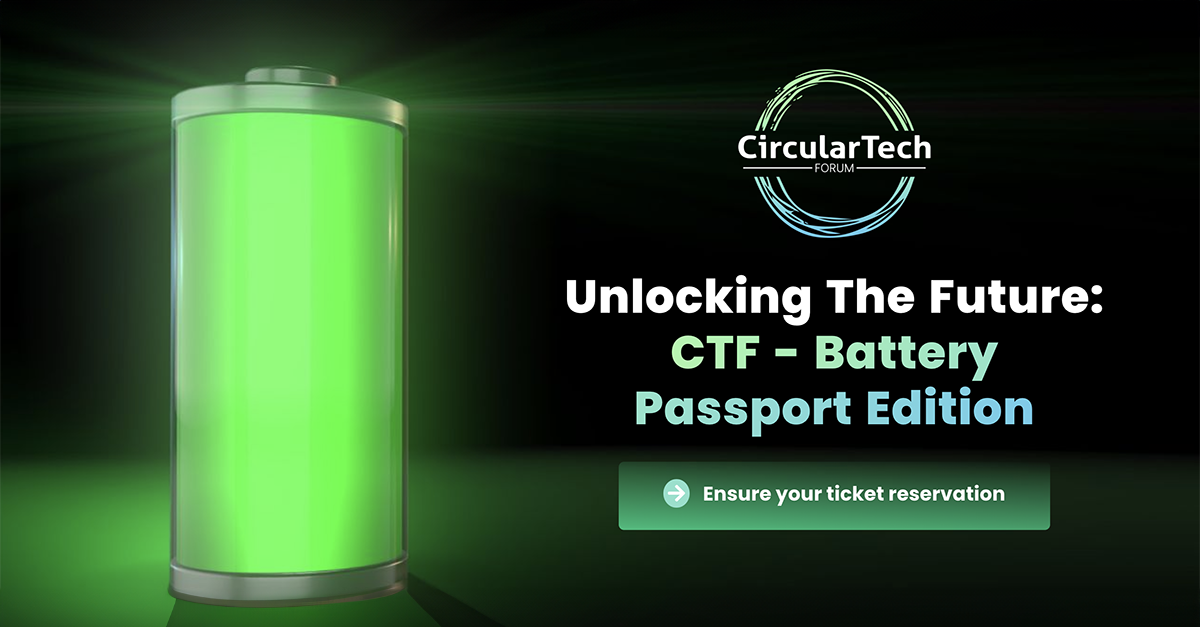In the dynamic landscape of sustainability, mark your calendars for June 6th as the CircularTech Forum presents the groundbreaking Battery Passport Edition – a pivotal event set to revolutionize the realm of digitalization, the technical aspects of digital product passports in general, and the battery technology’s circularity in particular. At the core of this monumental leap lie the EU Battery Regulation and Ecodesign for Sustainable Product Regulation (ESPR) as cornerstones of the EU Green deal and the Circular Economy Action Plan. Mandating the creation of a comprehensive Battery Passport by 2027 and in other product segments by 2028, these regulations reshape how we perceive and manage product (circularity) design, labeling, and performance.
With its enforcement in August 2023, the Battery Regulation it not only a frontrunner that sets stringent rules but also champions supply and transparency. It will cast its influence on every industrial and electric vehicle battery entering the EU market with a capacity exceeding 2 kWh. This heralds a transformative shift in how batteries are conceptualized, produced, and managed as waste and how the data should be managed along the lifecycle of the each battery. Under the battery regulation, responsibility falls on market players to ensure social and environmental risk mitigation across their supply chains, from sourcing critical materials to updating data in the Battery Passport. By 2025, vital information like product carbon footprint must be publicly accessible in a Digital Battery Passport, fostering transparency and accountability. Other industries that are regulated under ESPR, such as textiles, buildings, detergents, chemicals, bed mattresses, cosmetics, furniture, lubricants, paints, toys, tires, aluminium, glass, iron and steel, paper products, plastics and non-ferrous metals can learn from the battery case and thus are also invited to join the Circular Tech Forum in June.
More info and registration



